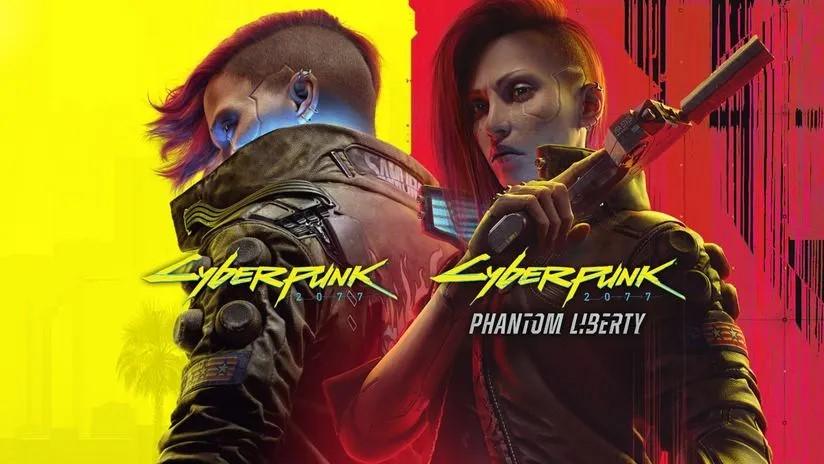Spoiler alert: This review contains references to key plot points.
After the massive success of their Witcher video game franchise in 2012, the famous video game developers CD Projekt Red decided to venture out and create something entirely different from their preceding work: an action-adventure role-playing game based on the famous tabletop game Cyberpunk.
This game, known as Cyberpunk 2077, allows players to assume the role of a character “V” and control V’s actions as they navigate and interact with the game’s cyberpunk-themed dystopian world.
In September, CD Projekt Red then released the expansion DLC (additional content gamers download for video games after their initial release) of the base game Cyberpunk 2077, called Phantom Liberty. In Phantom Liberty, players follow the main character, V, on an espionage mission to save the president of the New United States of America (NUSA). On the way, V meets two allies who both worked for the NUSA on various missions in two different circumstances: Song So Mi “Songbird,” a genius hacker known as a “netrunner,” and Solomon Reed, an ex-NUSA agent.
The main aspects of Phantom Liberty that drew me in are the visually stunning character designs and entertaining plotline. When I played through the first half of the game, I felt like the game’s storyline was straightforward and I could predict the consequences of each choice I made. However, as I continued to play and dig deeper into the details of V’s missions, the game’s narrative became increasingly interesting and unpredictable.
I discovered that there were more nefarious secrets in the game than I first realized: The characters that V trusts all have ulterior motives. For instance, the president of NUSA exploits songbird’s abilities and forces her to work for the government while ignoring her declining health. Agent Reed betrays his comrades due to his unwavering loyalty to the NUSA and his moral commitment to the “greater good.” Songbird lies to V all the time, and yet is still looking for V to save her from her dying body.
Ultimately, immersed in the role of V, I had to decide between two potential endings for the game: to defend what V stood for by supporting Songbird and freeing her from the grasp of the NUSA government, or sacrifice Songbird’s freedom for the greater good by siding with Reed to take Songbird back in their control. In a dystopian game like this, there is no perfect ending, and no matter what choice you make, someone is bound to lose. In the end, I chose to shoot Agent Reed and send Songbird to the moon for her to start a new life and cure her of her condition.
In addition to its engaging plot, this expansion also boasts several new benefits to pique the interest of veteran Cyberpunk 2077 players, including a new map “Dogtown,” which is located in the south side of the original map “Night City,” a fictional Californian city that is described as paradise of mercenaries and gangsters. Although the map isn’t large, it continues the Night City’s unique vertical design style (the use of different heights and levels in a game environment to create variety) and offers opportunities for players to explore over 30 main and side missions.
At the same time, CD Projekt Red also brought the game its final major updates, which helped to improve my overall gameplay experience. The new redesigned skill trees (a system where players can spend earned points to upgrade their gameplay functions) are more user friendly — which helped me understand how to build combinations out of different skills. Compared to the old version, the updated driving system also makes me feel as if I am driving a real car and adds vehicle combat, which allows me to use weapons like rifles while driving a car or wield katanas while riding a motorcycle. Not to mention, this update introduced a number of gameplay balance patches, quality of life fixes and performance improvements. Players worldwide responded extremely positively to these changes, with recent Steam reviews reaching an astonishing 91% positive feedback rate.
The Phantom Liberty expansion takes about 20 hours to complete, making it basically a full game in itself. While this may seem like a large time commitment, playing Phantom Liberty is worth it. Phantom Liberty received a 9/10 rating on IGN and received overwhelmingly positive reviews on every platform just after its release. For players who want to explore digital cyberpunk cities or experience being an agent on a secret mission, Cyberpunk 2077: Phantom Liberty is a can’t-miss choice.


























